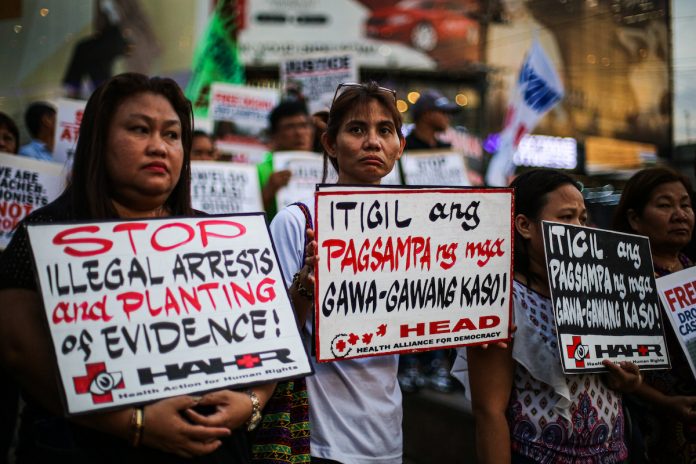Rights group Karapatan has called for the amendment of the rules on the writ of Amparo following several denied petitions to protect human rights defenders.
“It is high time to amend the Supreme Court rules on the writ of Amparo after several attempts to avail of the remedy have left embattled human rights defenders and victims of human rights more vulnerable to threat, said Cristina Palabay, secretary general of Karapatan.
The petition for a writ of Amparo is a remedy available to any person whose right to life, liberty, and security is violated or threatened with violation by an unlawful act or omission of a public official or employee, or of a private individual or entity, and covers extralegal killings and enforced disappearances or threats thereof.
Palabay said there have been numerous instances where petitions for the protective writ have been dismissed, leaving individuals under threat even more vulnerable to harassment, vilification, and red-tagging by state security forces.
Karapatan cited several cases, including the denial of petitions filed by its members, Gabriela, and Rural Missionaries of the Philippines in 2019.
“In a few days, then National Security Adviser Hermogenes Esperon, Jr. filed malicious and retaliatory charges of perjury against officials of the three organizations,” said Palabay.
The group also cited the case of Karapatan Sorsogon paralegal Ryan Hubilla who was killed while the petition was pending before the Court of Appeals. The killing of Hubilla was followed by the abduction and enforced disappearance of former Karapatan Southern Mindanao secretary general Honey Mae Suazo.
Zara Alvarez, a human rights worker of Karapatan, was killed in Bacolod City, a year after she filed a petition to avail of the remedy.
Palabay said the writs were “supposed to be preventive mechanisms” to address the killings and disappearances of activists. She, however, said that they have become ineffective in providing immediate legal protection to victims under threat.
She also criticized the prevailing policies of the government and the continuous ‘red-tagging,’ which were “made more systematic under the National Task Force to End Local Communist Armed Conflict (NTF-ELCAC).”
“Threats and harassment continue to this day, and rights violations continue to rise,” said Palabay.
She called for domestic mechanisms that prioritize the safety and well-being of human rights defenders, victims of human rights violations, and of those critical of government policies and vocal in opposing them.









